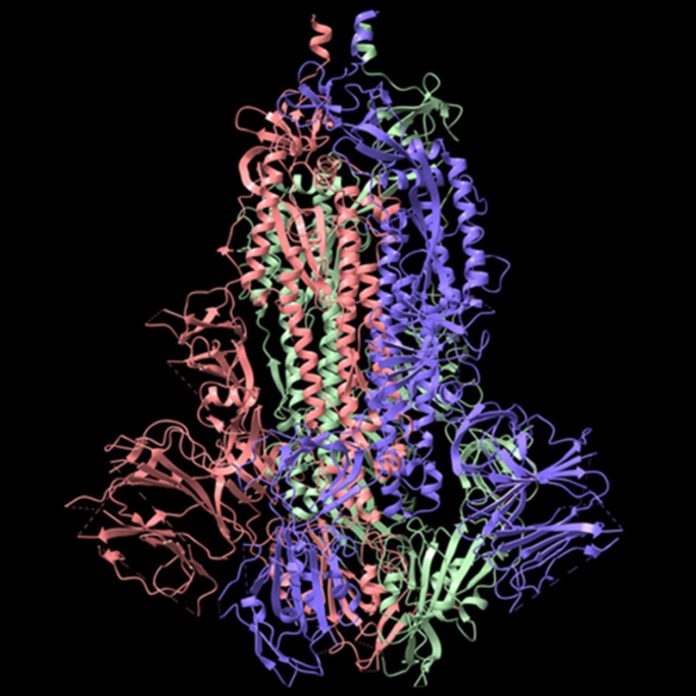A new study by the University of Bristol suggests that Vitamin D and other antiviral drugs might help combat COVID-19. The study demonstrates that these dietary supplements and compounds could bind to the viral spike protein, thus may decrease SARS-CoV-2 infectivity.
Conversely, cholesterol may increase infectivity, which could clarify why having elevated cholesterol is considered a risk factor for severe disease.
In their study, scientists showed that linoleic acid sticks to a particular region in the viral spike protein, locking the spike into a closed, less infective form.
Using computational methods, scientists investigated other compounds that might have the same effect as potential treatments. Through this study, they hope to prevent human cells from becoming infected by preventing the viral spike protein from opening enough to interact with a human protein (ACE2),
Scientists studied a library of approved drugs and vitamins to identify those which might bind to this recently discovered ‘druggable pocket’ inside the SARS-CoV-2 spike protein.
At first, scientists examined linoleic acid’s impact on the spike.
The computational simulations show that it stabilizes the closed form. They also showed that dexamethasone might even stick to this region and help reduce viral infectivity in addition to its effects on the human immune system.
Scientists further determined other compounds that bind to the fatty acid site. This identified some drugs that have been discovered by experiments to be active against the virus, recommending that this might be one mechanism by which they prevent viral replication, for example, by locking the spike structure as linoleic acid.
The study suggested that several drug candidates and dietary components have slow SARS-CoV-2 reproduction in the laboratory. These have the potential to bind to the SARS-CoV-2 spike protein and may help to prevent cell entry.
Dr. Deborah Shoemark, Senior Research Associate (Biomolecular Modelling) in the School of Biochemistry, who modeled the spike, explained: “Our findings help explain how some vitamins may play a more direct role in combatting COVID than their conventional support of the human immune system.”
“Obesity is a major risk factor for severe COVID. Vitamin D is fat-soluble and tends to accumulate in fatty tissue. This can lower the amount of vitamin D available to obese individuals. Countries in which some of these vitamin deficiencies are more common have also suffered badly during the pandemic. Our research suggests that some essential vitamins and fatty acids, including linoleic acid, may impede the spike/ACE2 interaction. Deficiency in any one of them may make it easier for the virus to infect.”
“We know that the use of cholesterol-lowering statins reduces the risk of developing severe COVID and shortens recovery time in less severe cases. Whether cholesterol de-stabilizes the “benign,” closed conformation or not, our results suggest that by directly interacting with the spike, the virus could sequester cholesterol to achieve the local concentrations required to facilitate cell entry, and this may also account for the observed loss of circulating cholesterol post-infection.”
Professor Adrian Mulholland, of Bristol‘s School of Chemistry, added: “Our simulations show how some molecules binding at the linoleic acid site affect the spike’s dynamics and lock it closed. They also show that drugs and vitamins active against the virus may work in the same way. Targeting this site may be a route to new antiviral drugs. A next step would be to look at effects of dietary supplements and viral test replication in cells.”
Alison Derbenwick Miller, Vice President, Oracle for Research, said: “It’s incredibly exciting that researchers are gaining new insights into how SARS-CoV-2 interacts with human cells, which ultimately will lead to new ways to fight COVID-19. We are delighted that Oracle’s high-performance cloud infrastructure is helping to advance this kind of world-changing research. Growing a globally-connected community of cloud-powered researchers is exactly what Oracle for Research is designed to do.”
Journal Reference:
- Deborah Karen Shoemark et al. ‘Molecular simulations suggest vitamins, retinoids, and steroids as ligands binding the free fatty acid pocket of SARS-CoV-2 spike protein. DOI: 10.1002/anie.202015639
